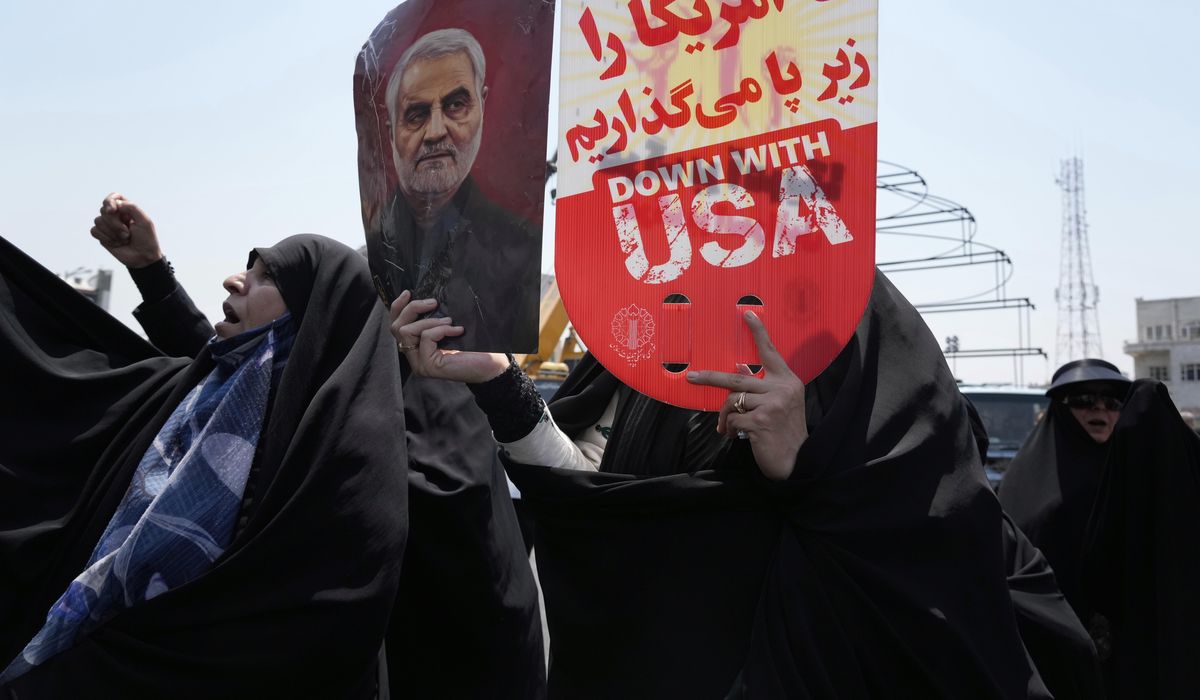


China on Friday criticized Israel’s airstrike against Iran, which has emerged during recent years as a key strategic partner of the Chinese Communist Party as Chinese government-linked companies invest heavily in the Iranian economy and lead the world in Iranian crude oil purchases.
Beijing “opposes actions that violate Iran’s sovereignty, security and territorial integrity” and is “deeply concerned about the potential grave consequences of the operations,” Foreign Ministry spokesman Lin Jian told reporters.
His comments underscored the precariousness of the current dynamics in the Middle East, as well as the prospect that the situation could dangerously devolve into global conflict.
There is a consensus in some American national security circles that China and Russia, as well as North Korea, would likely back Tehran against the U.S., Israel and other Western allies should the present hostilities spiral into world war.
The notion of such an alignment hung in the backdrop Friday as world leaders watched for signs of whether Iran may attempt to target both Israel and the U.S. in retaliation for Israel’s airstrikes, which decimated several Iranian nuclear sites and killed the top commander of Iran’s Islamic Revolutionary Guard Corps (IRGC), Maj. Gen. Hossein Salami.
News of his death has triggered global headlines and brought to the fore a level of regional anxiety comparable to that which gripped the Middle East during the days after a U.S. drone strike killed Mr. Salami’s predecessor, Qassem Soleimani, in October of 2020.
SEE ALSO: Trump tells Iran there’s still time to make a nuke deal
The 2020 strike was authorized by President Trump near the end of his first term in office. This time around, it was Israeli forces that were in the lead, although with the backing of the Trump administration.
Mr. Trump appeared to be treading carefully in his remarks on the developments Friday.
In his first comments on Israel’s attack, the president said in a social media posting that the Israeli campaign against Iran “will only get worse” and urged Tehran to immediately reach a nuclear deal with the U.S.
The attacks came after months of U.S. efforts to make a deal with Iran to dramatically limit its nuclear program and a day after the top U.N. nuclear watchdog formally chastised Tehran for evading inspections, a move that prompted vows by Iranian leaders to accelerate their uranium enrichment operations.
Later on Friday, Mr. Trump reiterated during an appearance on NBC News that Iran can still strike a nuclear deal.
“They missed the opportunity to make a deal,” he said. “Now, they may have another opportunity. We’ll see.”
When asked why he thinks Iran still wants an agreement hours after Israel launched devastating strikes on Iran’s nuclear program and military leadership, the president said Iranians were contacting him about a deal. “They’re calling me to speak,” Mr. Trump said.
In China, meanwhile, Mr. Lin said that Beijing “opposes moves that escalate tensions and enlarge conflicts.”
“The abrupt heating up of the region serves no one’s interests,” he told reporters. “China calls on relevant parties to choose the course of action that is conducive to the region’s peace and stability, and avoid further escalation of the tensions.”
Mr. Lin added that “China stands ready to play a constructive role in helping ease the situation.”
Trump administration officials have argued that Beijing’s role has been anything but constructive.
The U.S. Treasury Department last month slapped sanctions on several Chinese companies that it said are involved in buying millions of dollars’ worth of Iranian oil.
China inked a 25-year strategic partnership with Iran in 2021. For years, it has ignored U.S. sanctions and purchased Iranian oil at staggering rates, according to the “Iran Tanker Tracker” project compiled monthly by United Against Nuclear Iran (UANI), a U.S.-based advocacy group critical of the Iranian regime.
UNAI reported recently that China led all other countries in Iranian oil purchases during May, buying more than 430,000 barrels per day.
• Guy Taylor can be reached at gtaylor@washingtontimes.com.
